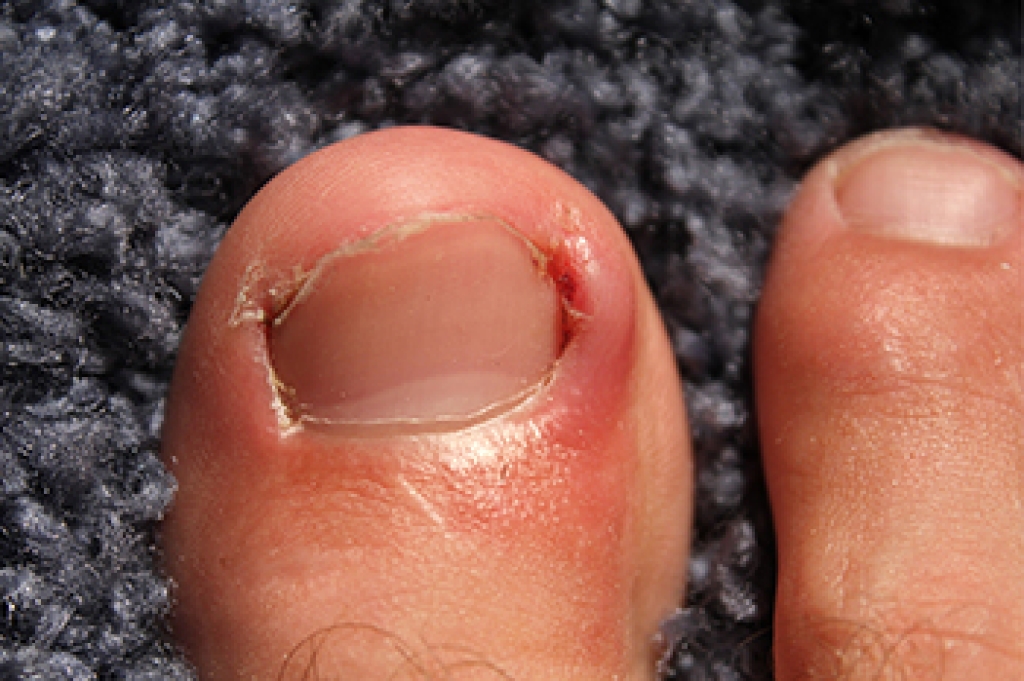
An ingrown toenail happens when the edge of the nail grows into the surrounding skin. This can lead to pain, redness, swelling, and sometimes infection. They often occur on the big toe and may be the result of trimming nails too short, wearing shoes that squeeze the toes, or even from an injury. Ingrown toenails can happen to anyone, though athletes and those on their feet for long periods of time may notice them more often. The discomfort can feel sharp and throbbing, making walking or wearing shoes difficult. Treatment may involve soaking the foot, gently lifting the nail edge, or, in more serious cases, a podiatrist may need to remove part of the nail. Prevention starts with cutting nails straight across and choosing properly fitted shoes. If you are struggling with an ingrown toenail, it is suggested that you see a podiatrist for proper care.
Ingrown toenails may initially present themselves as a minor discomfort, but they may progress into an infection in the skin without proper treatment. For more information about ingrown toenails, contact one of our podiatrists of PA Foot & Ankle Associates. Our doctors can provide the care you need to keep you pain-free and on your feet.
Ingrown Toenails
Ingrown toenails are caused when the corner or side of a toenail grows into the soft flesh surrounding it. They often result in redness, swelling, pain, and in some cases, infection. This condition typically affects the big toe and may recur if it is not treated properly.
Causes
- Improper toenail trimming
- Genetics
- Improper shoe fitting
- Injury from pedicures or nail picking
- Abnormal gait
- Poor hygiene
You are more likely to develop an ingrown toenail if you are obese, have diabetes, arthritis, or have any fungal infection in your nails. Additionally, people who have foot or toe deformities are at a higher risk of developing an ingrown toenail.
Symptoms
Some symptoms of ingrown toenails are redness, swelling, and pain. In rare cases, there may be a yellowish drainage coming from the nail.
Treatment
Ignoring an ingrown toenail can have serious complications. Infections of the nail border can progress to a deeper soft-tissue infection, which can then turn into a bone infection. You should always speak with your podiatrist if you suspect you have an ingrown toenail, especially if you have diabetes or poor circulation.
If you have any questions, please feel free to contact one of our offices located in Allentown, Easton, Northampton, and Chew Street in Allentown, PA . We offer the newest diagnostic and treatment technologies for all your foot care needs.
